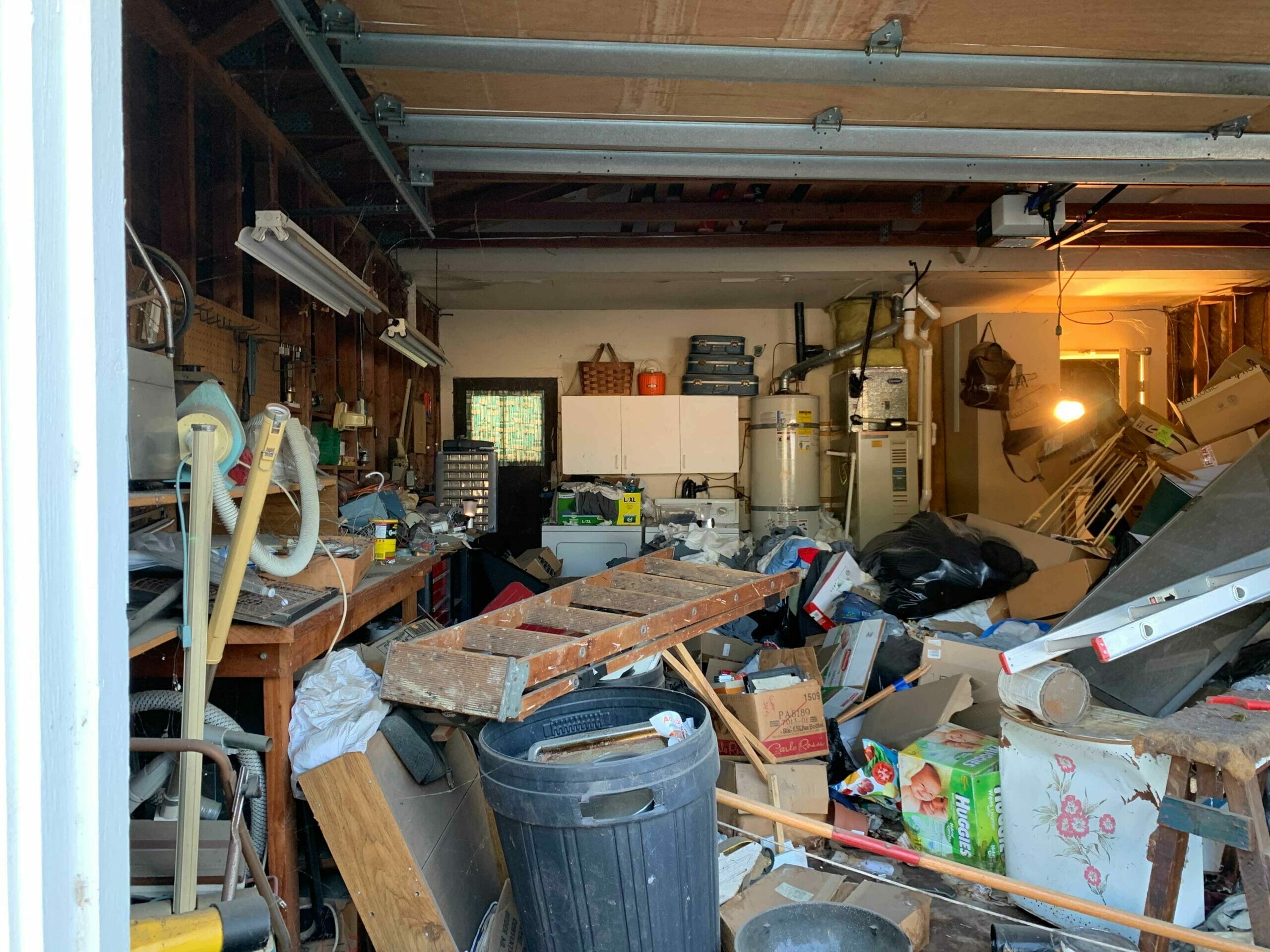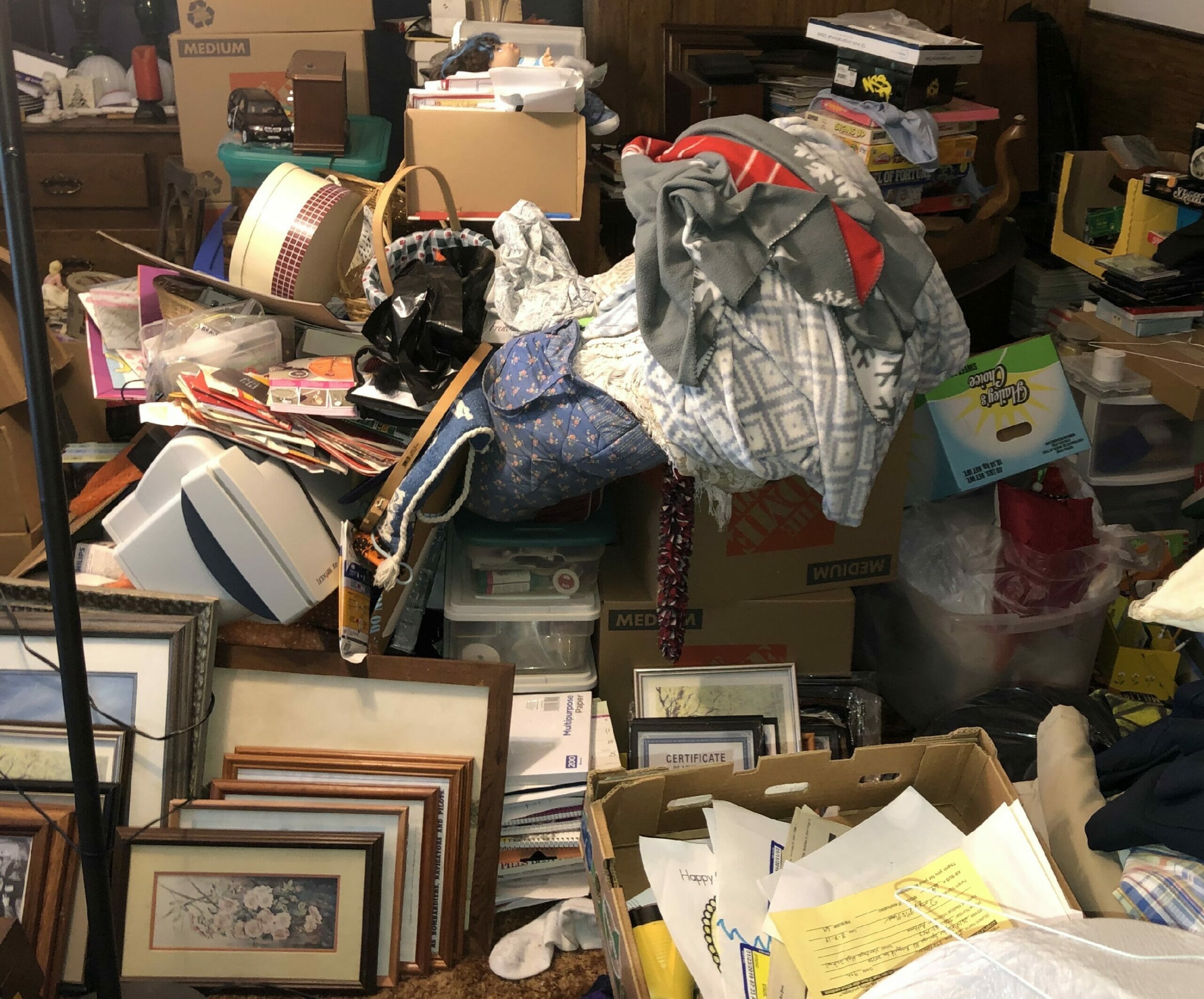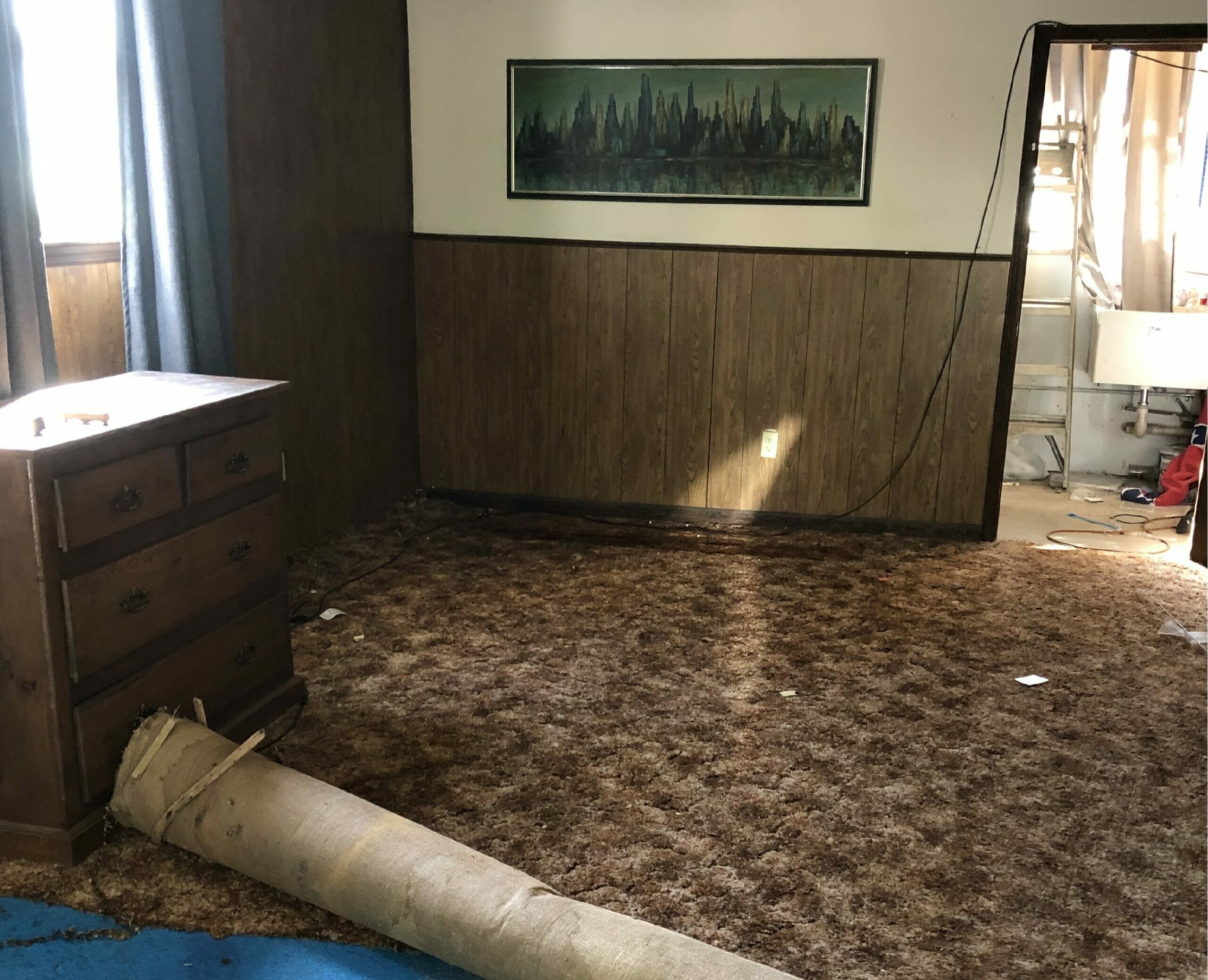
Hoarding affects millions of people worldwide, and all the hoarded properties are a clear indicator of this disorder. While collecting items is normal human behavior, hoarding goes beyond that and becomes excessive, causing discomfort and harm to the individual and their loved ones. In this blog post, we will discuss the common signs of Hoarding Disorder and telltale signs of hoarded properties.
We'll also discuss the dangers of clutter and hazards that can be found in these environments, and why it's essential to help those struggling with hoarding find professional help.
Disclaimer: The information provided in this post is intended to educate and raise awareness about Hoarding Disorder and is not a substitute for professional mental health advice. We are not mental health professionals, and our insights should not be used to diagnose or treat hoarding behavior. Our role is to assist in restoring homes affected by hoarding to a safe, functional state, and we strongly advocate for the involvement of mental health professionals in this process.
Bio-One of Pittsburgh
What is Hoarding Disorder?
According to the American Psychiatric Association (APA), Hoarding Disorder is defined as "the persistent difficulty discarding or parting with possessions, regardless of their actual value." Individuals with HD have an excessive emotional attachment to objects, leading them to keep items that may seem worthless to others. This behavior often causes distress and interferes with daily life activities.

Common Signs of Hoarding Disorder
HD can manifest in various ways, making it challenging to identify. Here are some common signs that may indicate HD:
Cluttered Living Spaces
One of the most apparent signs of Hoarding Disorder is a cluttered living space that makes it difficult to move around or use certain rooms in the house.
Difficulty Discarding Items
Individuals with HD have a hard time getting rid of possessions, even if they have no practical use or value.

Acquiring and Saving Excessive Items
Hoarders tend to buy or collect things excessively, often resulting in overflowing storage spaces and hoarded properties.
Emotional Attachment to Objects
Hoarders often attach sentimental value to objects, making it challenging for them to let go of them.
Difficulty Organizing
Hoarders struggle with organizing their possessions, resulting in chaotic and cluttered living spaces.
Hazards of Clutter and Hoarding
Apart from creating an overwhelming living environment, Hoarding Disorder can also pose significant hazards to the person struggling with it and those around them. Some potential dangers include:
- Increased risk of falls and injuries: With excessive clutter, it's easy to trip and fall, leading to injuries.
- Fire hazards: Cluttered spaces increase the risk of fire, especially when items are blocking exit paths or near heat sources.
- Unsanitary conditions: Hoarding can result in unsanitary living conditions due to the accumulation of trash and debris, attracting pests and mold growth.
- Structural damage: The weight of excessive items and clutter can cause structural damage to the house.
- Health risks: Hoarding can also result in health risks, such as respiratory issues due to poor air quality from dust and mold.
Additionally, hoarded materials can often become breeding grounds for bugs, rodents, and other pests, which pose a threat to public health.

Tellable Signs of a Hoarded Property
Hoarded properties often have common characteristics that can be identified by property managers, landlords, and neighbors. Some of these signs include excessive clutter, animal or insect infestations, odors, and unsanitary living conditions. Hoarded properties can pose significant risks to individuals, families, and communities. For example, hoarded properties are often prone to fires and can contribute to the spread of diseases.
Ways to Help Someone With Hoarding
The role of mental health professionals in hoarding situations cannot be overstated. Treatment and interventions are essential for individuals struggling with hoarding behaviors. Some ways to help someone with hoarding include:
- Encouraging open communication: It's important to create a safe and non-judgmental environment for individuals with hoarding tendencies to open up about their struggles. Encouraging them to express their feelings and concerns can help in identifying the root cause of their behavior.
- Providing support: Hoarding is often linked to mental health disorders such as anxiety, depression, or OCD. Providing emotional support can help individuals feel less overwhelmed and more motivated to seek help.
- Offering assistance: Hoarding can be a daunting task for individuals to tackle on their own. Offering practical assistance in decluttering and organizing their living space can make the process seem less overwhelming.
- Establishing a plan: Working with a mental health professional to establish a plan that includes setting achievable goals and developing coping strategies can greatly benefit individuals struggling with hoarding.
- Educating yourself: It's essential to educate yourself on HD and its associated risks. This knowledge can help you better understand the condition and provide more effective support to those in need.
Identifying common signs of Hoarding Disorder and hoarded properties is crucial in helping those struggling with the condition.
Bio-One of Pittsburgh Can Help
In some cases, hoarding behaviors can be too overwhelming for individuals or their loved ones to handle alone. That's where Bio-One of Pittsburgh comes in.

We understand the sensitivity and complexity of hoarding and work with compassion and empathy towards our customers. If you or someone you know is struggling with hoarding, do not hesitate to reach out to us.


